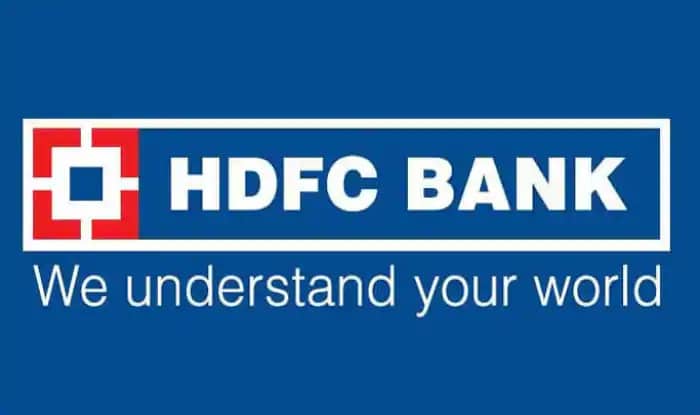HDFC Bank Tweets Support for Bitcoin Amid India’s Crypto Uncertainty
Cryptocurrencies have long been a grey area in India, with ongoing debates about their legality and future in the country. Recently, reports have emerged suggesting that India’s parliament is considering a nationwide ban on cryptocurrencies, creating significant uncertainty in the crypto space. In the midst of these concerns, however, HDFC Bank, one of India’s leading private banks, has unexpectedly shown support for Bitcoin. The bank took to Twitter to share educational content about Bitcoin and its smallest unit, Satoshi, offering a ray of hope to the Indian crypto community.
In the tweet, HDFC Bank explained why Satoshi is known as the smallest unit of Bitcoin, further detailing how Bitcoin and Satoshi transactions work. This tweet marks a notable moment for the Indian banking sector, as it contrasts with the scrutiny that many crypto traders are facing from their banks. Amidst the possibility of a crypto ban, the tweet serves as a reminder that some financial institutions in India are still engaging with Bitcoin in a positive and educational manner.
Indian Banks and Their Relationship with Cryptocurrency
Despite HDFC’s tweet, banks in India have been increasingly scrutinizing crypto-related transactions. Several private banks, including HDFC, HSBC, and Citi, have sent notices to their customers, urging them to clarify any crypto-related transactions. These banks have even requested customers to visit local branches to explain their involvement with cryptocurrency, warning that failure to do so could result in account suspension or seizure.
This growing scrutiny comes at a time when the Indian government is reportedly working on a new bill that could limit the financial activities of crypto traders. The bill, if passed, would impose heavy restrictions on cryptocurrency-related transactions, making it harder for individuals to freely trade or hold digital assets in India. As the crypto landscape faces mounting regulatory pressure, these actions by Indian banks suggest a tense environment for cryptocurrency holders and traders.
Cryptocurrency’s Potential to Bank the Unbanked Population in India
Amid these challenges, voices from the Indian crypto community have spoken out against the potential crypto ban, arguing that cryptocurrencies can play a vital role in improving India’s financial landscape. Sathvik Vishwanath, the CEO of India-based crypto exchange Unocoin, has been a vocal advocate for the adoption of cryptocurrencies in India. Vishwanath believes that cryptocurrencies, particularly Bitcoin, could be a key tool in banking India’s large unbanked population.
In a country where a significant portion of the population remains outside the formal banking system, the decentralized nature of cryptocurrencies offers an opportunity to bring financial services to those who have traditionally been excluded. By embracing digital assets, India could unlock new economic potential, providing access to financial services for millions of people without the need for traditional banking infrastructure.
Banks Proactively Blocking Crypto-Related Transactions
Despite the potential benefits of cryptocurrency, Indian banks have been taking a cautious approach to crypto-related transactions. As part of the ongoing crackdown on cryptocurrency, banks have been proactively blocking or investigating accounts believed to be associated with funds moving through cryptocurrency exchanges. This has caused significant concern among Indian crypto traders, who fear that their accounts could be frozen or shut down without proper explanation.
The increasing regulatory uncertainty surrounding cryptocurrencies in India has created an environment of fear and confusion for traders. Many are now being forced to navigate a complex and often unclear regulatory landscape, unsure whether their crypto-related activities will be tolerated by banks and authorities.
SBI and JPMorgan’s Blockchain Collaboration
While some banks are taking a hard stance against cryptocurrency, others are exploring blockchain solutions for traditional financial services. The State Bank of India (SBI), a government-owned bank, has recently partnered with JPMorgan Chase to enhance cross-border payments using blockchain technology. The collaboration aims to improve transaction efficiency and reduce costs for the bank’s customers, further demonstrating the growing recognition of blockchain’s potential in the financial industry.
SBI has joined Liink, a blockchain-based interbank data network created by JPMorgan. This partnership highlights the potential of blockchain technology to transform traditional banking practices, even as cryptocurrency faces regulatory challenges in India. By embracing blockchain for cross-border payments, SBI is positioning itself at the forefront of financial innovation, even as it grapples with the broader issue of cryptocurrency regulation.
Conclusion: The Future of Crypto in India
The ongoing debate over cryptocurrency regulation in India is at a critical juncture. While some banks like HDFC are showing support for Bitcoin and educating their users about its use, the broader banking sector remains wary of crypto-related transactions, with increasing scrutiny being placed on traders’ accounts. The Indian government’s proposed crypto ban could have far-reaching consequences, but voices like Sathvik Vishwanath’s argue that cryptocurrencies can be a powerful tool to bank the unbanked and drive financial inclusion in India.
As India continues to navigate the regulatory landscape, the role of banks like HDFC, which engage with the crypto space in a positive way, will be crucial in shaping the future of cryptocurrency in the country. With global banks like JPMorgan exploring blockchain solutions and Indian banks testing new technologies, there is hope that India will eventually embrace the potential of digital currencies, even if it takes time for regulatory frameworks to evolve.
To learn more about the innovative startups shaping the future of the crypto industry, explore our article on the latest news, where we delve into the most promising ventures and their potential to disrupt traditional industries.
Disclaimer: The information provided is not trading advice, Bitcoinworld.co.in holds no liability for any investments made based on the information provided on this page. We strongly recommend independent research and/or consultation with a qualified professional before making any investment decisions.




